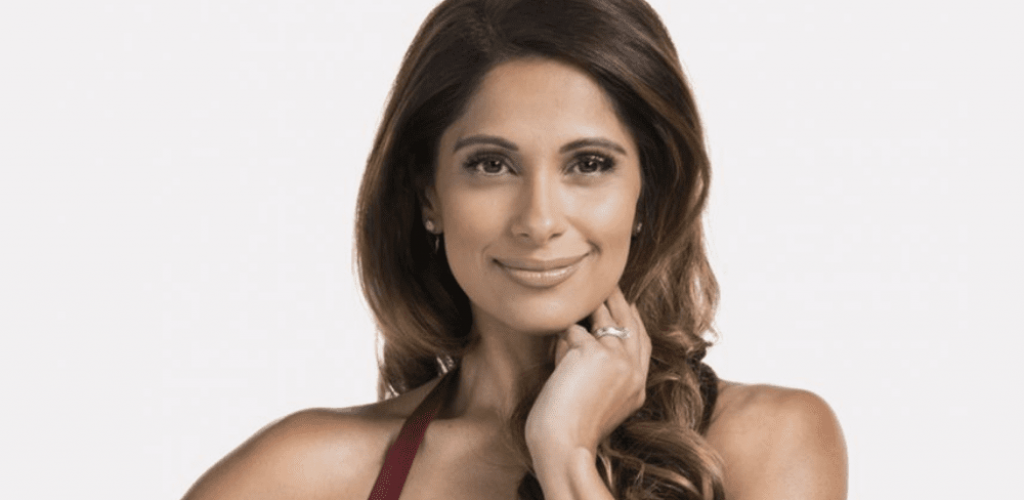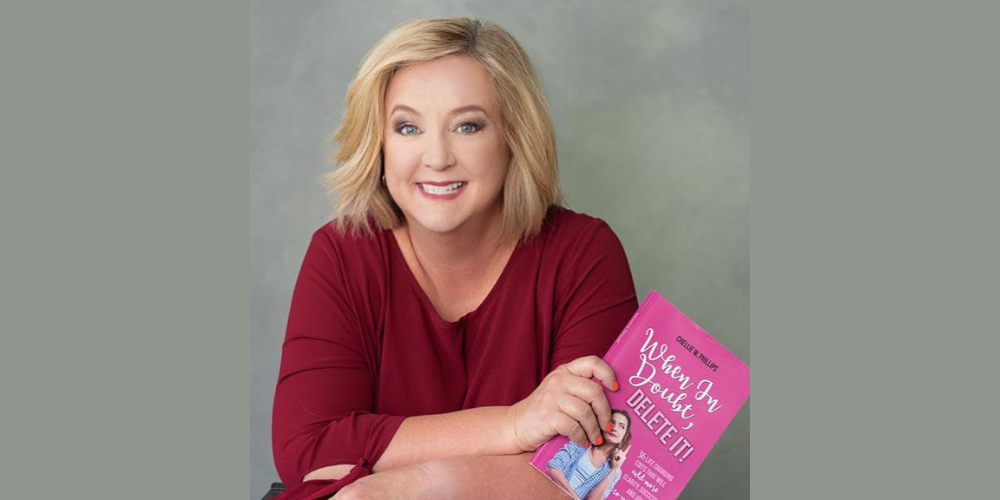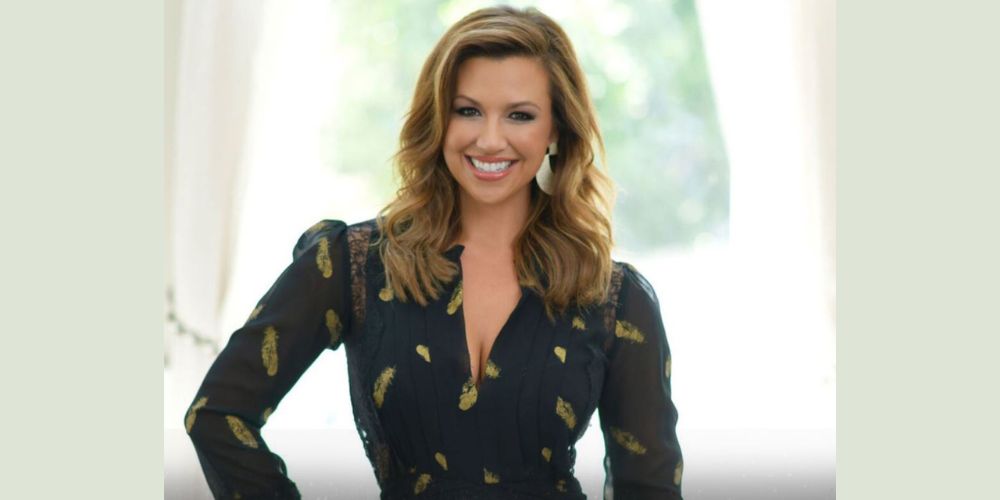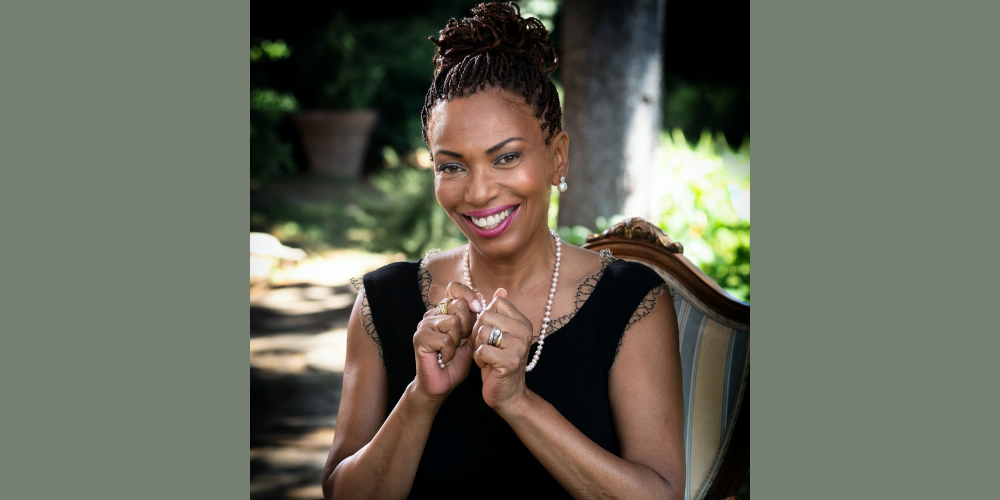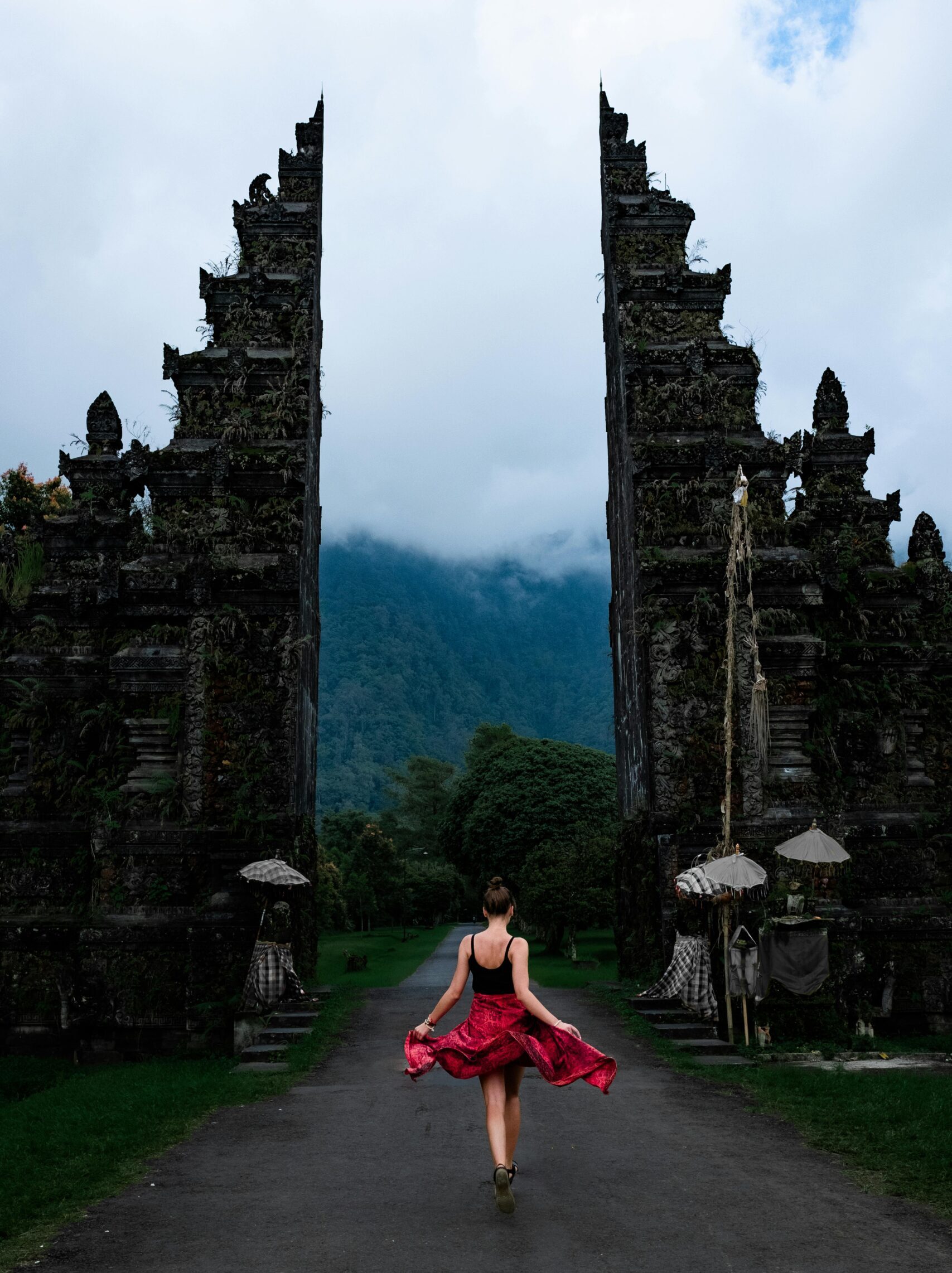Raj Girn: Hey, guys, thanks for tuning in to another exciting episode of the ‘Transform Your Confidence Show.’ Do you struggle with being able to tell people your story with ease and confidence? Perhaps you freeze up in crowds or on stage. Or maybe you’re inherently a very shy person who is now in a position of leadership and need to learn how to inspire your team. If any of these sounds familiar to you, then this two-part series is for you. In this 2nd week of April, where our theme is Media and Communications, this week’s series is entitled ‘Tips from a Celebrity Host on How to Connect Authentically with Virtual Audiences.’ My guest is one of Canada’s best-loved media and detainment personalities, Sangita Patel.
Here is Part One of our conversation:
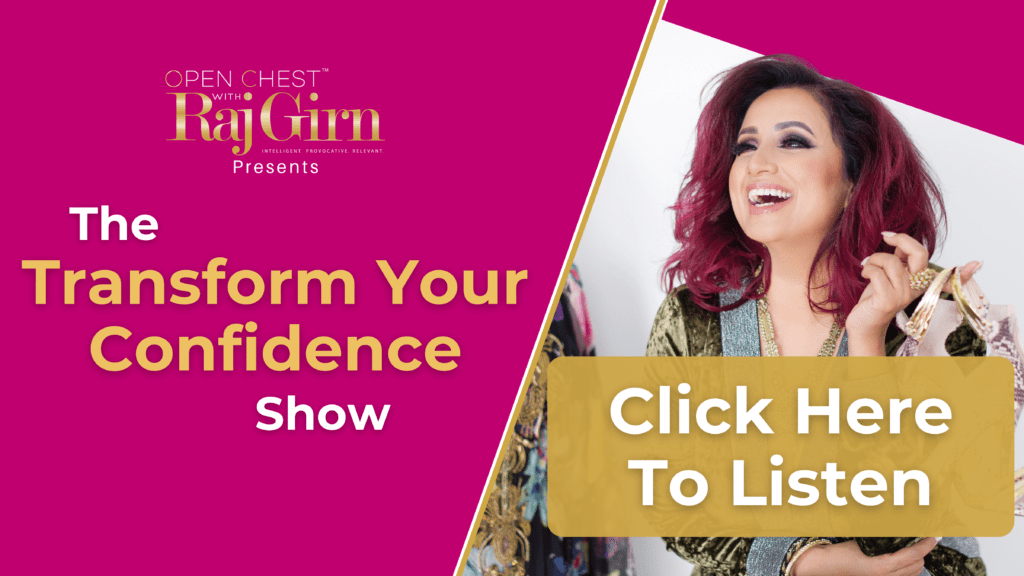
Here’s a bit about Sangita before I bring her on. She’s an engineer-turned-television personality who worked her way up the Canadian news landscape reporting on local lifestyle and entertainment news. She joined ET Canada in 2014, covering breaking entertainment news and traveling the globe to interview some of today’s biggest stars, including Julia Roberts, Dwayne Johnson, Viola Davis, George Clooney, and Helen Mirren, to name a few. In 2016, Sangita was announced as the host of HGTV Canada’s popular home renovation series ‘Home to Win,’ leading the program for the past five seasons and garnering a Canadian Screen Award nomination for her hosting duties. In 2019, Sangita was named the Canadian spokesperson for Cover Girl’s Simply Ageless Collection and Access Cover Girl’s First Canadian South Asian Ambassador. Please welcome to part 1 of the show, the fabulous Sangita Patel.
Raj Girn: Sangita, thank you so much for agreeing to be on my show. It’s been a while. I believe it was 2014, the last time we sat down and talked about your life. How have you been, girl?
Sangita Patel: Well, since 2014, it’s been a whirlwind. Life has completely changed. But I’m good. I’m coping. And I think that’s what it’s all about right now, just coping through all of this and just making things happen for yourself and just keeping sane. So, essentially I am sane right now in 2021.
I love it. So let’s take some of your sanity and give our audience some of your well-intended and your amazing insights into the experience of you being in the media business. Are you good to jump right in?
Yeah, I’m ready for this. I have no makeup or nothing on right now. But you know what? Let’s do this. I’m ready.
Let’s do this, girlfriend. So there are so many myths about effective communications with the most common being that we all do it, when in fact, very few of us have been schooled in the art of communicating, let alone doing it effectively, since it hasn’t really been and still isn’t, unfortunately, a mandatory part of general academic curriculum. Like a lot of other things that we learn in grade school and in university that we never, ever use. But things like the art of communications, like how to rear children, financial etiquette, are things that we’re not really taught. But that’s the whole of the show, I’ll stick with a line that I want to talk about, and that is the area that I know that you’re going to be able to really lend a lot of insights to your vast experience.
I want to ask you this, that, this whole kind of the idea behind not being trained in knowing how to communicate has put us in a place where most of what we’ve learned in communicating has been predicated on the experiences that we’ve had with people in person, as well as virtually, like our family, our friends and people that we work with. So from my perspective, it makes total sense, especially since I’ve spent two decades in the media space, that the best people to garner insights from about communicating effectively are those with the largest exposure to people who the masses look to as role models. So who better than someone like you, babe, who has been interviewing role models for years and are yourself one.
Many people look up to you for so many reasons, and I want to kind of tap into some of that. For those people who aren’t familiar with Sangita, like, where have you been? She’s both a national television personality as well as, she hits all the main famous red carpets around the world, especially during awards season. And she even goes to check out what’s happening with royal families and babies being born and everything in between. Right?
That’s right.

So with that said, I would like to tap into your varied experiences as a lifestyle and celebrity host on television, as a red carpet host, and as a live events host, because I’ve seen you do it all and I’ve seen you do it all so well. No, truly, babe. In order to shed some light on things that you’ve learned along the way that have helped you quickly connect and to connect authentically because I find that no matter what environment you’re in, you’re always Sangita. Like, there’s no kind of version of you. And I say that like, you know, very honestly, like you’re always you.
So my first question for you is, because I want to kind of break down your science, which you’ve learned to experience. What in the years of interviewing some of today’s most well-known personalities around the world, would you say are the top three ways that you keep their attention? And is there an example that you can share in that at all of the many that you’ve had?
Yeah, it’s interesting how people handle communication. It goes back to the days when you were younger where you were told to be a respectful daughter and you are an Indian girl and you must do this and not speak up. I was quite the opposite. I was very vocal, very open to comments and always getting myself into situations. And my dad was like, “Okay, she has an opinion about this and this and this.” And that came from also having an incredible teacher who put me forward and said, you are going to host this event, you are going to do the announcements in the morning. So at a very young age, I realized I love speaking and using my voice. But it also was to have that communication of having that conversation.
So I think that part of the reason that I’m doing what I’m doing now, even though I went into engineering, was I wanted to tell people stories. And that’s what you do as well, Raj, is to be able to share those moments that are going to help other people. So when it comes to my top three, when I go into an interview with any celebrity, I do a lot of research. I feel like you’re my best friend, that we’ve been friends for so long. So I’ll have my producers tell me these are the questions we kind of want. But then I go into like this vortex of information the day before and I go in because you never know where the conversation is going. You could be prepared, but you just don’t know. They may say something about their dog and then you will go and have the conversation about the dog. So number one is being well prepped. Make sure yourself that you have the information that you need.
Number two, I walk into an interview. Even if it’s for four minutes, I act like you’re my best friend. You forget that they’re real people at certain points. You know, you have that celebrity moment with certain people. That’s happened to me once, twice, maybe three times. And that’s how I go into it. And the third thing is to be you. As you said, you can’t be someone else. The connection that you make is because of your own personality. And I think that really does help the situation. I know you’re stressed out. You’re going in and you’re nervous about it. But just that’s even worse is just go in and be yourself. That’s what you know. So go in with what you know.
So I think that’s number three. But, yeah, I’ve had moments. Connecting with The Rock is incredible to Tom Cruise. Like, the guy knew my name. He knew my history, he knew who I was. I was like, “What is happening right now?” And that’s insane. And he called me out when I didn’t show up in Toronto for an interview. He was like, “Where is she? She’s supposed to be here? She told me she’s going to be here.” How do you remember our conversation? You’re talking to thousands of people. But these are the moments. And the time I kind of freaked out was with Helen Mirren. She was cursing when I was walking into the room. And I’m like, “Oh, my God. Helen Mirren is using words that I could never use in my life.” And I was like, “This is amazing.”
She’s British. You expect it.
She’s British. I didn’t know that. It’s like “No, you can’t say those kinds of words.” And then Halle Berry, I walked in and I was like, “Oh, my God.” Like she’s just stunning. And I just like I don’t even know why I’m here. I forgot the movie. I’m like, “You’re just stunning.” Like these little moments do happen. But I think the most important thing to learn is to know that you can be yourself and make that connection. And that’s really important. Don’t try to be someone else.
“I think the most important thing to learn is to know that you can be yourself and make that connection. And that’s really important. Don’t try to be someone else.” ~Sangita Patel
It’s just so powerful when you say that. And a lot of people hear this and they say to themselves, “Yeah, okay, I get that.” But when you’re in that moment and you meet someone that’s larger than life and you’ve got cameras and their management and all this noise going on and they kind of sort of don’t want to be there because they’ve got other things they’re thinking about. You have got to kind of bring you, the you factor. So, yeah, how do you do that? Like, if you’re faced with a situation where you’re meeting someone for the first time? And we all have opinions about celebrities, right? And they’re always larger than life. And we always feel that, “Oh, my God, they’re probably amazing in real life.” And it’s not always the case because they’re dealing with a lot of moving parts, right? Yeah. So what are some ways that you create instant connection in those kinds of circumstances? Is there something that comes to mind that you can share?
So one of the things I do when I do junkets or if I walk into a room and there are cameras, there’s everything from the entourage to makeup, all of it. The first thing I do is walk in and say hi to everybody. I say hello to everybody. Even before I get to the celebrity, or the star, the actor. I say hi to the camera guy and they say hi to everyone. I acknowledge them. And I think that kind of sets the tone of who I am, like who I want to be with you at that moment. I’ve had some incredible moments where I just walk into the room. I’ve fallen off the carpet because my heel got the stuck. That was a moment. To George Clooney making me coffee because he was making coffee. There’s always something that happens. I was sitting in the room with Tom Cruise, I’m sweating buckets. It’s like 30 degrees in there. And he has not one. Not one sweat on his face. And I’m like “How the hell are you not sweating?” I had like armpit stains and I’m showing it to him. I’m like, “How is this possible?”

So there’s always something with me. I don’t know because maybe I’m a nerd. I don’t know what it is, but there’s always some incident that happens. And I think that kind of makes you reflect that I’m just human. I make mistakes like everybody else. But it’s just being who you are. And some of them, you just really do connect with them. And there are times where you won’t. You will walk into the room, the person stressed out and you feel it. You say this person really is not in the mood right now. So you respect that and you do your job. They do their job. And you get what you have to get. And it’s not always the moment that you want, but you did your job and that’s going to happen for sure.
I remember this one actress. I walked in. I was the last person for the interview and she got her cell phone. She takes her cell phone and she’s doing this. And they’re like, “Your time is starting.” I’m like, “I have four minutes.” And she’s just on the phone and she’s just doing it. And her PR person is like, “This is your last interview. Let’s just get it done.” Still on the phone. My reaction was to look at my camera and say, this is my interview. It’s her on the phone, and this is how we’re going to put this interview on our show. And we did. So you just don’t know. But they’re exhausted. We’re exhausted. But we’re trying to do our job and we’re trying to sell this movie. But I take it at a deeper level where I do really want to connect with everybody I talk to.
Right. You know, you said something that’s really poignant that I want to kind of stress here for anyone that’s just joining us. Folks, I’m speaking to the fabulous Sangita Patel. She is fabulous. Like she’s complaining she’s wearing no makeup. I mean, you don’t want to see me with no makeup, girlfriend. Trust me. So she is an entertainment reporter at ET Canada. She’s been there for quite some time and she’s done some really, really interesting entertaining and noteworthy interviews with some really, really incredible people, a lot of whom you will know.
She’s also the ambassador for CoverGirl, which I also want to mention. And I want to talk a little bit about your ambassadorship in a moment, Sangita. Get but before I do, for those who are just joining us, there’s something that you said, that was so poignant in the way that you answered, is that what I got from it was you don’t let how they are feeling or what energy they’re into affect the energy that you have decided to be in that room to do your job. That is fundamental in terms of you making sure that you own your power and you control the situation so that you’re getting the job done.
Yeah, you’re right. It’s exactly that. That’s it. You could be down and out, but you bring that energy and their energy will change. I’m a big believer in smiling. I believe if you smile at a stranger that it will change their attitude. And I smile all the time. There is something about an energy about smiling or just bring that comfort to people that will change their ways. And I really do believe in energy. So if you bring that positive energy, your interview is going to be great as well because they’re kind of enjoying what you’re bringing. So you have to do that.
“I’m a big believer in smiling. I believe if you smile at a stranger that it will change their attitude. And I smile all the time. There is something about energy, about smiling or just bring that comfort to people that will change their ways.” ~Sangita Patel
Absolutely. So let me ask you this question then, Sangita. Let’s throw you in the deep end. You’re in a high-stress environment like a red carpet. There are specific tips that I know that you can share with people based on all the different carpets that you’ve been on and making sure that you get your moment, because not always do you get that moment. How do you make that moment happen? Like, how are you getting the attention of this person that is kind of being whisked almost by you? Let’s talk a little bit about that and the reason why this is important, a lot of people get intimidated by being kind of a bit more assertive with their communications. Talk a little bit about maybe something that comes to mind there.
Oh, man. This takes me back to my City TV days. But you’ve got to be aggressive on the red carpet. Remember, there are over one hundred reporters are there and there’s international reporters. There are so many people trying to get the attention of these big stars. So what are you going to yell? Are you going to yell, “Come over here?” No, that’s not what you’re going to yell? You’re going to find that little information that they are going to turn around and go, “Yo, I’m going to go talk to that person.” A good example was when I first met The Rock and we Tweeted each other. He’s such an inspiration to me. We Tweeted each other back and instead of saying “Dwayne,” or “Rock” or whatever it was, “Push-ups, push-ups.” He turned around and he goes, “You’re not ready for me.” And he came over to talk to me because I yelled out “Push-ups.” So you’ve got to find that little thing that’s going to nudge them and get their attention. And that’s how I try to get my moments. And sometimes it’s really difficult, but sometimes it really works. So don’t yell out, “Hey, hey, hey, you look beautiful.” It’s more of like, you know, whatever they did that day. But find that moment.
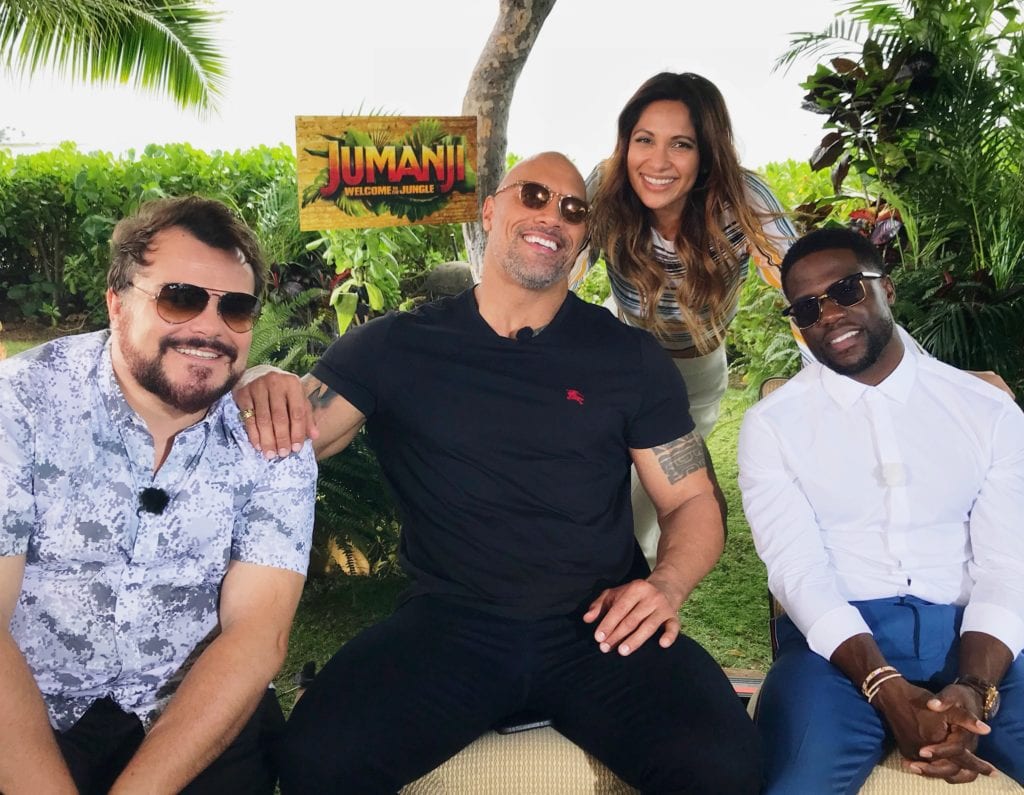
That’s so interesting because as someone that doesn’t come from a traditional communications journalism background. I mean, you’ve already mentioned that you came from an engineering background. And prior to that, you were a lot more kind of boisterous and you were given the opportunity to be that way, both in the family and also with the support you were getting in the academic arena. Do you feel all of that is what kind of helped you to not feel intimidated by all these people that came with these journalistic degrees and all this academia? Like because you’ve found a place where you stand out. You’ve figured out who you are in that massive sea of millions of very, very highly educated journalists. I feel like you never were intimidated by that, at least not from my experience with you. Talk to us a little bit about that.
It’s a really good question. And I think it was partly I was oblivious to this industry and I came in the game later. I didn’t have to build myself on this ladder to get to this point. And I think that was partly because I was an engineer and I said, “If this doesn’t work out, if my passion, my obsession does not work out. I always have a job going back to engineering.” And I think that’s really what it is, is the foundation. I didn’t have to worry about my parents giving me money or anybody else. I could live off myself. And I said, I’m going to take the chance and see what happens. And here I am. So it is establishing my foundation that gave me the confidence to go into this game. As I got older and I got to know this industry more, I was blindsided. There were things that I did not know because I didn’t start from the beginning. I didn’t know some of the behind the scenes or how harsh this, I’ll be honest, how harsh this industry really is and and how competitive it really is.
Especially with the personalities.
Exactly. It’s all of it. And I am still very oblivious to it because I thought people are supporting each other, people are saying there’s a journey for everybody. If you could do it, I could do it. Like, that’s how I see it. But it’s not the way, unfortunately. Those are the lessons I’ve been learning. But I think it was the concept that I had the foundation and I was like, “Hey, if it doesn’t happen, I could always fall back on something else.”
Absolutely. And it’s really interesting that you’re sharing that because a lot of people have a real hard time with people who have a problem with them being in their space. I mean, this is something, it doesn’t matter what career you’re in, doesn’t matter kind of space of life you’re in, we’ve all kind of come across these situations. Again, this comes back to how do we communicate our way out of this situation so we’re not compromising who we are, but we’re also making a stand for who we are? Do you have any insights or any thoughts that you want to comment on that?
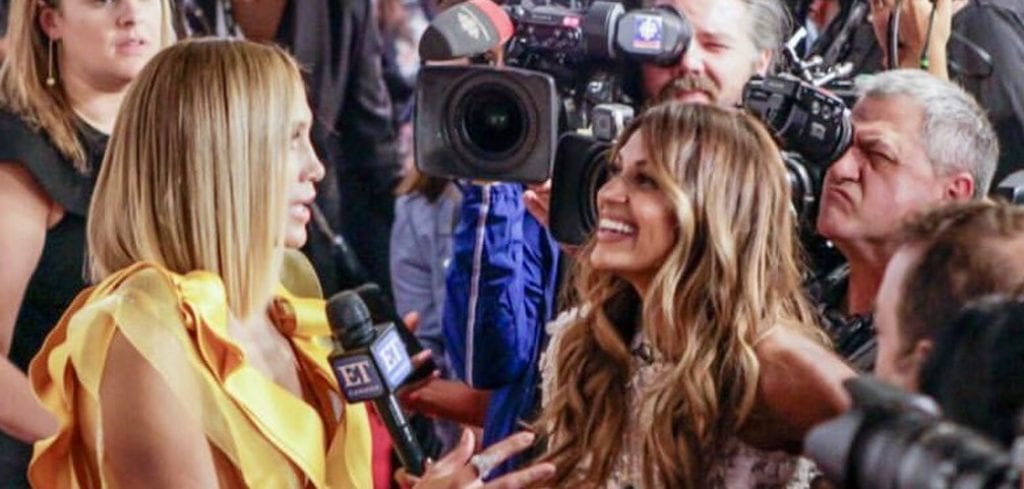
Raj, and I think that’s part of it. When you and I talked years ago, until now, when we look at life now, social media has a way of speaking for you, which sucks because you are judged on those moments that you put out there or this person is not following or you or this person’s not commenting. So there must be something wrong or you start creating stories in your head, which are not true. And that’s how we’re starting to live life. Like when was the last time you talked to this person? When was the last time you actually picked up the phone and say, “Hey, hello, how are you?” And actually say “This is what I was thinking.” It doesn’t happen anymore. Everyone is judging you on what you put out there on your platform, which is not the way to communicate. I started calling people more. I started texting people more.
That’s something I’ve totally changed during COVID, is actually calling people. And I’ll say sometimes “There’s no problems or anything. I’m just calling to say, hi, how are you?” And sometimes they’re like “Really?” And I’m like, “Yeah, how are you doing? We haven’t talked is so long. How’s everything going?” And I’m like “I see stuff on social but really how are you?” And you will see how many people are not doing well and they want to hear that voice. So it’s difficult this generation. I don’t know how they’re going to be able to communicate the way we did because everything you do out there is putting a story out there. And it’s not always the truth. So how do you make yourself an actual truth to people out there? And do you care? That’s the other question. Do you care about what other people think? And we live in a society in an industry where we do. And I have to learn how to let that go. So that’s my lesson in life right now is to being oblivious and learning late in the game is now understanding to hold back and still be true to myself. And that’s a challenge.
“It’s difficult this generation. I don’t know how they’re going to be able to communicate the way we did, because everything you do out there is putting a story out there. And it’s not always the truth.” ~Sangita Patel
So, you’re also a mom. You’re a mom to teenagers. So you’re talking about a generation with experience on them. How do they deal with it? Is it as big a deal for them as it is for you? Because I can tell you from my experience, I’m a Gen X, right? So I’m a legacy human. I’m pre the online world. My son has only known the online world. And for him, he doesn’t have the drama narrative that I have around the transition between the two and how do I make them gel together. So I’m curious to know, how is that with your kids? Do they have drama around it based on kind of your narrative, the one that we just finished talking about? Or is it like my son where it’s like it’s just not a big deal? Or is it different because they’re girls and he’s a boy? Talk to me.
Yeah, I don’t know. Do you think it’s not a big deal because he doesn’t really have to put himself out there? He can hide. And I think that’s the thing with this generation is whatever they put out there. Like people are creating social media pages for their babies. So they have the name so they can go to university and so they can establish himself. It is it’s mind blowing that you don’t actually… It’s like your whole life is a resume. And that’s what you’re going to be based on rather than who you really are. And I think that’s what it is with this generation is they’re careful of what they put on social media, but they don’t think there’s any repercussion to it as a person.
And I don’t think they can make that connection. My daughter’s never come to me and said, “What does Shelley think of me? I don’t know. She didn’t like my post.” She’s never said that to me. But I think we just don’t have that connection like we do. We had that connection. And so it’s a learning curve. I am blessed, knock on wood, my two girls have good mindset. They understand themselves as they’re growing. But it’s a difficult situation to learn. They are a whole new generation that never existed before. This generation is speaking up on ways on social media, like we’ve never seen before. They’re not afraid to write down what they’re feeling so I don’t know.
You know, it’s so interesting that you’re picking up on that because I know that when I first started ANOKHI, all those years ago, I got kind of blasted, mostly from my community than I did by people outside of my community. Because they felt that we’re not allowed to talk about life. We’re not allowed to talk about beauty and fashion and how women feel and being confused about identity because inside the home and outside the home are different than the world we live in today and all of that narrative.
And then you look at a lot of the people that have come out of this generation you’re talking about who have become massive stars for doing just that, for for being extremely unapologetic. And I still, after my years of being one of the first people to kind of go in that direction, still hold myself back. I still say, “Oh, my God, I can’t go there.” So what I mean, what you’re saying, though, is so important. I think the most important part of what you’re saying is the fact that this generation don’t feel like they need to apologize for who they are if they don’t fit into the box that they are expected to fit into. That wasn’t you and me.
“This generation does not feel like they need to apologize for who they are if they don’t fit into the box that they are expected to fit into.” ~Raj Girn
No, it wasn’t. It wasn’t. And that’s not how we were raised. We had to be very respectful of our family name, of how we show the family when we go forward into the world. But like you said, you Raj, were one of the originals who changed the way our community actually communicated and put things out there. And I felt the same way when I did certain things where… I remember posting a picture of myself in a swimsuit, out on a beach. And the response to that was insane. And I was like, I mean, I’m on the beach. I’m a Canadian. I was born a certain way, like…
I remember that. Was that like about five years ago or something?
Well, yeah, five years.
I remember that.
You remember that? Even in this industry, people didn’t post pictures of themselves in swimsuits. And I was like “But I’m playing volleyball. I don’t understand.” And so there was such a reaction to it. But I felt like, you know what, I’m one of the originals. Now people are putting up pictures of their swimsuits and being free and showing off their bodies. And I’m like “You know what, I’m okay with this.” But that was a learning curve for me. And I think it actually liberated me at that point and said, “You know what, this is me. And you are responding to it, maybe negative or positive, but it’s causing the conversation. So I’m doing something that’s helping others.”
Absolutely. And you know what’s really interesting as well, Sangita. Like I’ve never shared this with you, but one thing that I love about you, particularly as a personality, is the fact that there’s never been a moment, whether it’s been early on in your career or kind of where you’re at right now, where you’ve ever not been honest about your pride to be who you are as a South Asian and as a woman. I’ve actually never seen you not do that. And you’re one of the few. Because a lot of personalities they’ll hold on to, “Okay let’s stay within the community, be proud of who I am.” And this is, you know, for anyone, anyone that comes from a very strong community, guys.
This is not just being South Asian. You could be Greek. You could be Italian. All of these communities have the same narrative. And then all of a sudden when they get to a certain stature in their career they’re quite comfortable not talking about being from their community and their culture because they feel that they need to not go there. That has never happened to you. Like I’ve seen you interview with top tier, mainstream media all the way down to the local podcasts for a brown mom and everything in between. I don’t know if you know this, but there’s very few that actually do that. And the only other person I can think about is Priyanka Chopra does that. Like she never forgets where she comes from, no matter how big she’s become. I don’t know if you realize you do this.
No.
But you do this. And I think that’s kind of something that’s very magical about how truly authentic you are. And I’m saying this on camera because I believe it.

That means the world to me. Thank you. Yeah, it’s interesting. I think when I started at City TV, this is years ago — 10 years ago. And I didn’t know — I was brought up in downtown Toronto — and this is where diversity lives at its best. We went to school with everybody and every type and I knew I was Indian, but it wasn’t what represented me. I never thought of it that way. And then I learned that there were young girls who are South Asian watching me because I was South Asian. And I’m like, “This is crazy.” Like I never acknowledged it. And then I started Instagram and I said to myself, “What is my voice? What am I going to do? I’m a mother of two girls. How? I just don’t want to post pictures. What am I what is my voice?”
And that’s where everything changed for me, Raj, was asking that question to myself. And I said, “What do I want to show to young women or women in general who are South Asian?” And the I didn’t know there were DMs and I went into DMs one day and I started this thing called Fitness Tuesday and the amount of DMs I got from women. And some of them are like, “How dare you work out and take time for yourself.” And the other ones were like, “Can you help me?” And those people who said, “Can you help me?” I’m like this is where I want to be. This is what my voice needs to be, is actually changing the journey so my kids are not going to deal with what I dealt with. That comes to racism, sexism, to not being able in our culture, in many cultures, where you are allowed to be yourself. It’s okay to take care of yourself. It’s okay to make yourself a priority. But that’s where I’ve come to that point now.
So let me ask you this. As a woman and one who helms from a strong cultural background — we just finished kind of talking a little bit about that, where you have to balance kind of the seesaw between cultures. So on one side, you’ve got the South Asians on the other side the mainstream. How do you handle the narrative of who you are, where you are presenting both sides of your identity without compromising each of them? Like something many people are challenged with because we feel in certain situations we have to be a certain way and other situations. And folks, you’ve already heard this conversation that I’ve been having with Sangita so far. Is that Sangita just is Sangita.
This is my answer.
Well, this is why this question is important. Because I kind of feel like you’ve figured it out. You want to spell it out.
Yeah, I think you said it. I think when you come to that discovery of what your voice is, I think that’s when it helps you. I mean, certain things I will sit back. There was the whole Indian protest to Black Lives Matter to Stop Asian Hate. And you’re trying to figure out how to be sensitive to all of it, even though if you believe in it. It’s like how do you convey your voice to make sure you’re doing the right thing for others? And I think that’s what it is. When I talk about my culture, I celebrate it. I don’t break down Indians. I don’t break down our culture. I’m like, we have Diwali, we have Holi, we have this and this. And even the Indian protests. I got slammed in so many different ways because I was supporting what was going on in terms of trying to help people.
“When I talk about my culture, I celebrate it. I don’t break down Indians. I don’t break down our culture.” ~Sangita Patel
And I think that’s where people forgot was the fact that I just don’t want people to get hurt. It doesn’t matter who you are. I don’t care if you’re the government. I don’t care. At the end of the day, people are dying. And that’s what this means for voice. So I think that’s what it is. It’s just you have to be careful of, what’s the right way to say this, I don’t want to… The right way to say it, I guess, is really is to help others. At the end of the day, use your voice to help others. I think that’s what it is. You may have here. And sure, you have an opinion, but how are you going to use that opinion to help others? So I think that’s what it is for me. Yeah, I may not believe in something. But is that really going to help anybody else? Probably not. So why do it?
Thank you so much for staying until the end, guys. I really hope you enjoyed the show and will action the many insights that were shared. There are so many myths about effective communications with the most common being that we all do it. When in fact very few of us have been schooled in the art of communicating, let alone doing it effectively, because this is another life skill that traditional academic curriculum doesn’t include.
So we are left picking up how to do it through watching, listening and understanding how people around us do it and hope we hit the mark. As a two decade-long media personality myself, who has interviewed and worked with some of the biggest celebrity and corporate names, I knew that in order to tackle the idea of communicating effectively, I needed to bring on a personality who has been exposed to big personalities and large audiences to garner experiential insights. So I decided to invite my friend Sangita Patel to talk to us and walk us through some of her varied experiences.
My hope is that this episode, at the very minimum, will help you open your mind to think about your own relationship with communicating effectively and whether you feel that what was shared could help you step up your own game to ensure that what you intend to accomplish is in fact what happens to your communications repertoire.
I hope that you found this episode to be valuable. And if you did, I’m so glad. I ask that you subscribe to this podcast. On your Apple and Android platforms, search ‘The Transform Your Confidence Show.’ On our Youtube channel at the Open Chest Confidence Academy. And if you’re an avid reader like I am, we’ve also transcribed every podcast into a blog which can be accessed at TheOpenChestConfidenceAcademy.com/media/our-media. And please hop over to our private Facebook group at Transform Your Confidence, where there are networking opportunities as well as knowledge and resources about mindset, media, communications, branding, marketing, leadership and advocacy for busy executives and entrepreneurs like you who are seeking to elevate the quality of their life. You know you’ve got to be there. And as always, thanks for tuning in and until the next episode, take care of yourself.
To contact Sangita Patel: LinkedIn, Instagram, Twitter, Facebook



